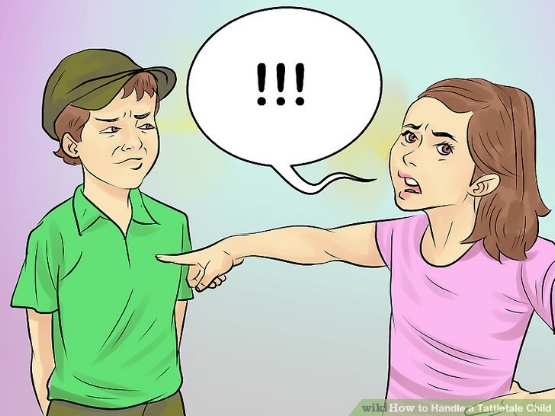Whataboutism's For Kids!
By Chris Churchill
Children need ones and zeroes, yesses and nos. Children need things to be absolutely true or absolutely false. Children need authority figures to tell them what is absolutely true and what is absolutely false. Because children don’t think very deeply. They don’t rationalize well. Life is complicated and we need to make things as simple as possible for children as they learn about the world.
One or the other, all the time, right?
Maybe later, when they are ready, we can add subtlety and nuance to their understanding of the world and it’s people.
Some people, though they grow to their full height, maintain jobs, even become heroes of one type or another, never lose their childish ways of thinking. Things are either good or evil. This is safe for them. And they don’t ever have to think about right or wrong again. This is reassuring to them. They think that having the answers means never having to think about the questions again. Convenient.
When speaking with people like this, one must speak in terms they understand, identify with, and can rally behind. A picture of the devil getting it’s eyes pecked out by a bald eagle; stuff like that.
Didn’t think I could find a picture of a bald eagle with a devil, did you?
If you are the type of person who has a propensity for using these childish adults to your advantage, you must talk to them at their level. The great thing for someone like this is that they can use this childish thinking against the childish without the childish ever noticing. (I hear “I love the poorly educated,” spoken by then candidate Trump, echoing in my head, as I write this.) Those who would, may use this absolutism (definition three in Websters, by the way: “an absolute standard or principle”), this obsession with dichotomy and authority, this binary thinking to program these meaty robots. The programming is easy to manipulate. Childish robots don’t get nuance. They really don’t.
If someone wants to manipulate a childish robot, they simply offer them a simple statement that, on it’s surface, appears unassailable but, in reality, in practice is only part of a larger equation. When someone manipulates this simplicity of logic, it becomes “Whataboutism”. Whataboutism appeals to those who are still the “tattler” in their hearts. Or maybe they acquired the status of tattler at some point in their adult life. The “tattler” was the kid that always told on the other kids when they caught them doing something wrong, or even worse, when they themselves got in trouble, they cried, “what about Johnny?” Or “what about Sarah?” Or “what about Evel Knievel?” or the three stooges or Beavis and Butthead?
You know them.
“But Little Billy Clinton did it first!” Alice cried, before running to the payphone to call the police on some black people barbecuing in the park.
Sometimes they hear a negative word or news item spoken about a political figure, comedian, or other celebrity that they love and they immediately say, “What about the guy that kind of did that before and no one complained then? What about the lady that suggested that before but then she changed her mind?’ You know what I mean. They see it in absolute terms, at least when it suits them.
Sometimes these people don’t grow up. Or at least, that part of them never changes. These people like on/off switches, not faders. They’re OK with today’s computers, but don’t let them know about quantum computing when that finally hits your local Best Buy. In fact, physics in general are kind of upsetting to them.
This is also why they look to religions and iconography (both of which appeal to unquestionable authority and not to reasoning and considering new information) for solace and validation. This is why they flinch at a politician that isn’t what they recognize as the authority figures they knew growing up. Generally, in America that means middle aged, white men that are easily appalled and who are quick to patronize those who dare question them.
There seem to be a lot of insurmountable differences between certain factions and, of course, not all differences can be worked out. That’s depressing sometimes. However, a lot fewer differences can be worked out by encouraging as many as will accept and understand the idea that absolutism and Whataboutism aren’t the only ways to understand morality. There can be a continuum. Why? Because we’re all adults here. We know we are capable of understanding more than yes and no, right or wrong. We understand that there are degrees to which a thing can be true. There are conditions under which s thing can be true or that same thing can be false.
Murder is different than killing. Is murder always wrong? Depends on the murder. Is killing always wrong? Depends on the killing. How wrong is a theft? Depends on the theft. And on and on and on. Right or wrong isn’t right.
I’m not amoral. I just think that to be truly moral, one must be honest that the reasons why certain things are done are often more important than the acts themselves. If you kill one to save a billion, I think we can agree that that’s okay. If we rob the rich to feed a starving innocent, I hope we can agree that that’s okay. And if you don’t agree, I hope you can offer a well thought out, adult reason for why you feel that way.
Absolutism is a lazy lie that dummies tell and that hypocrites will lie about again later when it suits them.
Whataboutism is the tool of the opportunist to manipulate the childish. Be careful out there. There are people pretending to be helping us who are only helping themselves. If you can’t up your brain game, they’re going to use your simplistic thinking to destroy you.


